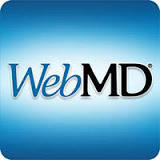raw fish sushi toddler

Food Safety in Children Older than 1 Year Preventing Foodborne Illness These resources are provided as sources of additional information believed to be reliable and accurate at the time of publication and should not be considered an endorsement of any information, service, product or company. Dietitian Services at HealthLinkBC (formerly Dial-A-Dietitian), providing free nutrition information and resources for BC residents and health professionals. Go to Healthy Eating or call 8-1-1 (anywhere in BC). Interpreters are available in over 130 languages. Is it an emergency? Thanks to our partners and endorsers: Related to Food Poisoning Stomach & Digestive Problems Listeriosis is food poisoning caused by eating foods contaminated with the Listeria monocytogenes (L. monocytogenes) bacterium. In pregnant women, the infection can result in miscarriage, premature delivery, serious infection of the newborn, or even stillbirth. Listeriosis affects mainly pregnant women, newborns, the elderly, and adults with impaired immune systems.

Healthy adults and children sometimes are infected with L. monocytogenes, but they rarely become seriously ill. Babies can be born with listeriosis if their mothers eat contaminated food during pregnancy. L. monocytogenes is found in soil and water. Vegetables can become contaminated from the soil or from manure used as fertilizer. Animals can carry the bacteria and can contaminate meats and dairy products. Processed foods, such as soft cheeses and cold cuts, can be contaminated after processing. Unpasteurized (raw) milk or foods made from unpasteurized milk can be contaminated. What are the symptoms? The symptoms of listeriosis include fever, muscle aches, and sometimes nausea or diarrhea. If infection spreads to the nervous system, symptoms such as headache, stiff neck, confusion, loss of balance, or convulsions can occur. But infected pregnant women may experience only a mild, flu-like illness. How is listeriosis diagnosed? Listeriosis is diagnosed based on a medical history and physical exam.

Your doctor will ask you questions about your symptoms, foods you have recently eaten, and your work and home environments. A blood test or spinal fluid test may be done to confirm the diagnosis. How is it treated? An otherwise healthy person who is not pregnant typically does not need treatment. Symptoms will usually go away within a few weeks. If you are pregnant and get listeriosis, antibiotics can often prevent infection of the fetus or newborn.
where to buy sushi usbBabies who have listeriosis receive the same antibiotics as adults, although a combination of antibiotics is often used until your doctor is certain the cause is listeriosis.
sushi one hong kong delivery How can you prevent listeriosis?
sushi delivery london east
You can prevent listeriosis by practicing safe food handling (adapted from the U.S. Centers for Disease Control and Prevention).Bag raw meat, poultry, or fish separately from other food items. Drive home immediately after finishing your shopping so that you can store all foods properly.Wash your hands before and after handling food. Also wash them after using the bathroom or changing diapers.
food delivery hotlines in metro manilaWash fresh fruits and vegetables by rinsing them well with running water.
sushi takeout clevelandIf possible, use two cutting boards-one for fresh produce and the other for raw meat, poultry, and seafood.
free sushi cat appYou can also wash your knives and cutting boards in the dishwasher to disinfect them.
city sushi episode online
Cook, refrigerate, or freeze meat, poultry, eggs, fish, and ready-to-eat foods within 2 hours. Make sure your refrigerator is set at or colder. But listeria can grow in the refrigerator, so clean up any spills in your refrigerator, especially juices from hot dogs, raw meat, or poultry.Use a clean meat thermometer to determine whether foods are cooked to a safe temperature. Reheat leftovers to at least . Do not eat undercooked hamburger, and be aware of the risk of food poisoning from raw fish (including sushi), clams, and oysters.Keep cooked hot foods hot [ or above] and cold foods cold [ or below]. Follow labels on food packaging. Food packaging labels provide information about when to use the food and how to store it. Reading food labels and following safety instructions will reduce your chance of becoming ill with food poisoning. When in doubt, throw it out. If you are not sure whether a food is safe, don't eat it. Reheating food that is contaminated will not make it safe.

Don't taste suspicious food. It may smell and look fine but still may not be safe to eat. If you are pregnant: Do not eat hot dogs, luncheon meats, or deli meats, unless they are reheated until steaming hot. Do not eat soft cheeses unless the label states they are made from pasteurized milk. Common cheeses typically made with unpasteurized milk-such as feta, Brie, Camembert, blue-veined cheeses, and Mexican-style cheeses such as "queso blanco fresco"-can cause listeriosis. You can have hard cheeses and semisoft cheeses such as mozzarella along with pasteurized processed cheese slices and spreads, cream cheese, and cottage cheese. Do not eat refrigerated pâté or meat spreads. But you can eat these foods if they are canned. Do not eat refrigerated smoked seafood unless it is an ingredient in a cooked dish such as a casserole. Examples of refrigerated smoked seafood include salmon, trout, whitefish, cod, tuna, and mackerel. You may eat canned fish such as salmon and tuna or shelf-stable smoked seafood.